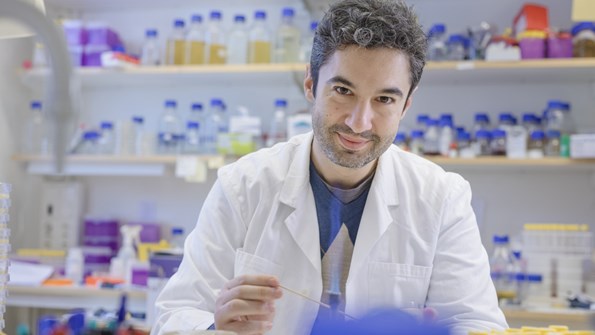
Image: Umeå Core Facility for Electron Microscopy.

Image: Umeå Core Facility for Electron Microscopy.
In Umeå we study fungal organisms in a variety of contexts: As robust and simple model organisms to elucidate cellular processes, as producers of chemical compounds used in industry and medicine (for instance antibiotics), as inhabitants and contributors to different ecosystems, and as infectious agents which cause disease in plants, animals and humans.
Fungi are traditionally considered as plant-like organisms but are evolutionarily more closely related to animals. They are omnipresent eukaryotic organisms inhabiting most areas of our planet from deep waters to dry deserts and even the gastrointestinal tract of higher animals as part of the microbiota.
Scientists have identified about 100,000 different fungal species, however, it is estimated that probably more than 1.5 million species exist. Fungi are heterotrophs, meaning that they need to take up and metabolize external nutrients in order to gain energy for growth and reproduction. They are unable to photosynthesize.
Fungal organism can grow as hyphae in which individual cells stay connected to form a mycelium. Yeast fungi grow separately as individual cells to form diffuse biomasses. The majority of fungi are decomposers and grow on decaying organic matter. As decomposers fungi are essential contributors for the cycling of biomaterials. Other fungi form critical symbioses, such as for instance mycorrhizae, which are part of the root systems where they supply essential nutrients to the plant.
Nevertheless, some fungi have a parasitic lifestyle and grow on living organisms to either cause disease or death. Several thousand plant-pathogenic species are known with smut and rust fungi among them. Only several hundred species cause disease in humans. Human mycoses affect mainly immunocompromised individuals. However, these infections are frequently severe with a high level of morbidity and mortality. Inefficient diagnostics and therapeutics with toxic side effects urge us to study fungal pathogenesis and to develop better antifungal drugs.

Felipe Cava wants to learn more about the small and complex microbes.